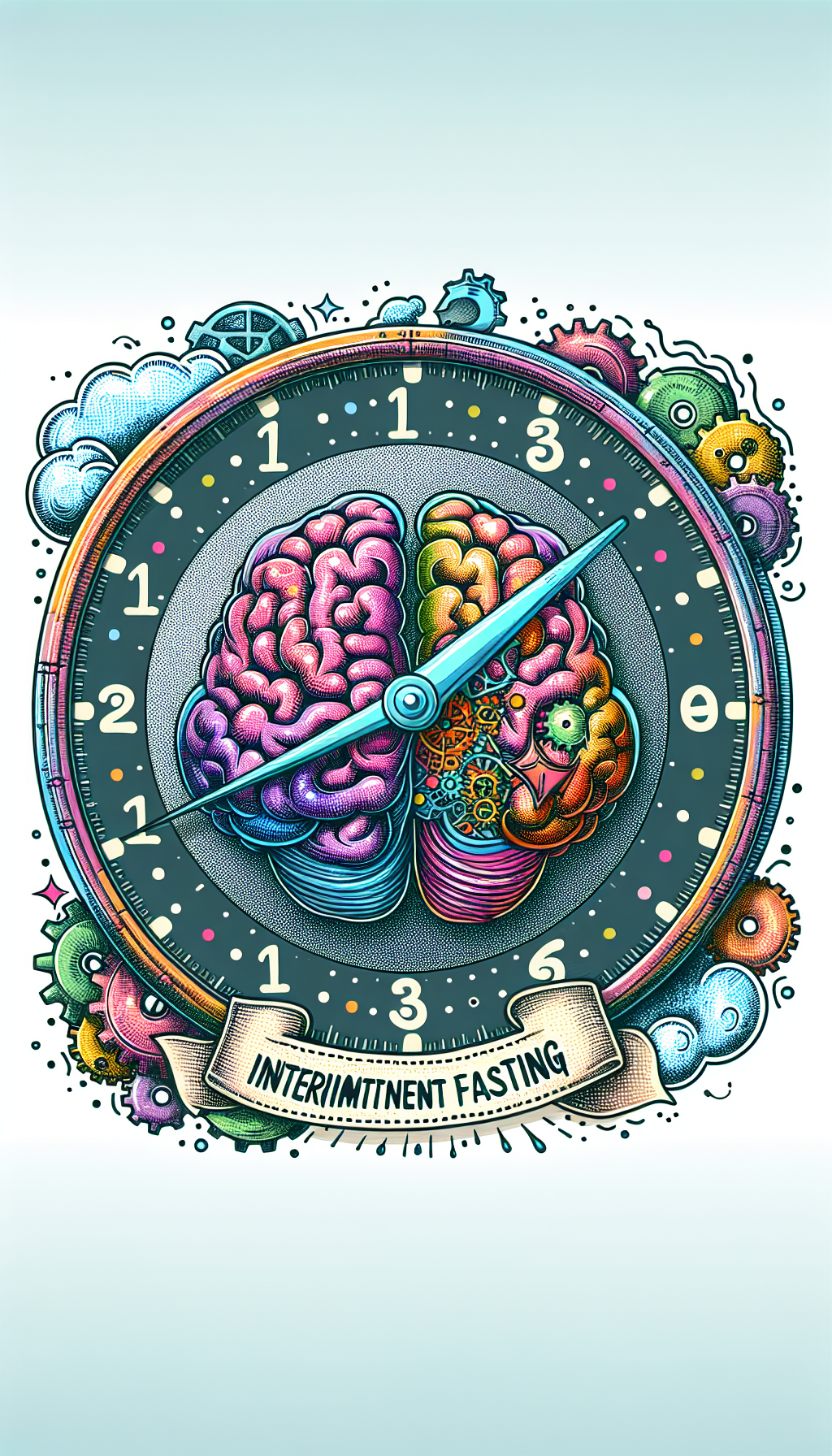Intermittent fasting (IF) has gained significant popularity as a means to improve overall health and wellbeing. However, its impact extends beyond weight loss and metabolic health, reaching into the domains of cognitive function and neurological wellness. This article explores the profound effects intermittent fasting has on brain health, delving into the underlying mechanisms, potential benefits, and practical applications of this dietary approach.
Understanding Intermittent Fasting
Intermittent fasting involves cycling between periods of eating and fasting. Unlike a dietary plan that focuses on what to eat, IF emphasizes when to eat. There are several methods of IF, including the 16/8 method, where one fasts for 16 hours and eats during an 8-hour window, and the 5:2 method, involving normal eating for five days and reducing calorie intake significantly on two non-consecutive days.
Neurological Benefits of Intermittent Fasting
Enhancing Brain Function
One of the most significant benefits of IF is its ability to enhance brain function. Studies suggest that fasting can improve cognitive performance, boost memory, and increase focus. During fasting, neuronal autophagy, the process by which cells remove and recycle damaged components, is upregulated. This can lead to improved brain function and a reduction in the risk of neurological diseases.
For a deeper understanding of brain health strategies, consider exploring Brain Health, which provides comprehensive insights into maintaining and enhancing cognitive function.
Neuroprotective Effects
IF is believed to have neuroprotective effects, potentially lowering the risk of neurodegenerative diseases such as Alzheimer’s and Parkinson’s. The stress of fasting can stimulate the production of neurotrophic factors, such as brain-derived neurotrophic factor (BDNF), which support neuron survival and encourage the growth of new brain cells.
Modulating Brain Inflammation
Chronic inflammation is a known contributor to cognitive decline. Intermittent fasting can modulate the immune system, reducing inflammation and oxidative stress in the brain. This can protect against cognitive impairment and support overall brain health.
Impact on Mood and Mental Health
Fasting can also affect mood and mental health. By regulating hormonal balance, including cortisol and serotonin levels, IF can help in managing stress and anxiety, contributing to improved mental wellbeing.
Practical Applications and Considerations of Intermittent Fasting for Brain Health
While the benefits of IF on brain health are promising, it’s essential to approach this dietary pattern with consideration of individual health conditions and lifestyle factors. Consulting with healthcare professionals before starting an intermittent fasting regimen is crucial, especially for individuals with preexisting health conditions or those taking medications.
Incorporating Intermittent Fasting into Daily Life
To successfully implement IF in your daily routine, start gradually and choose a fasting method that aligns with your lifestyle and health goals. Consistency is key, as well as ensuring that your non-fasting periods include nutrient-rich foods that support brain health.
Complementary Strategies for Cognitive Enhancement
Combining IF with other cognitive enhancement strategies can amplify its benefits. Engaging in regular physical exercise, ensuring proper sleep, and maintaining social connections are all vital for brain health.
For further reading on complementary strategies, the following articles provide valuable insights:
- Evaluating the Cognitive Benefits of Bilingualism discusses the positive impact of speaking multiple languages on cognitive function.
- Understanding the Effects of Hyperconnectivity on the Brain explores how modern technology use can influence cognitive health.
- The Role of Antioxidant-Rich Foods in Brain Aging Prevention offers dietary advice to combat cognitive decline.
Monitoring Progress and Adjustments
Monitoring cognitive performance and overall wellbeing is essential when practicing IF. Adjustments to the fasting regimen may be necessary based on individual responses and health outcomes.
Supporting Research and Further Reading
To substantiate the points made regarding intermittent fasting and brain health, consider the following high-quality, niche resources:
- A study published in the National Institute on Aging investigates the connection between calorie restriction, intermittent fasting, and neuroprotection.
- Research from the Society for Neuroscience provides insights into the relationship between fasting, circadian rhythms, and cognitive health.
- An article in the Journal of Molecular Neuroscience examines the effects of intermittent fasting on neuronal health and longevity.
Conclusion
Intermittent fasting is more than just a trend for weight management—it’s a lifestyle choice with the potential to significantly enhance brain health. By understanding the science behind IF and integrating it thoughtfully into one’s life, individuals can harness its full cognitive benefits. As with any dietary change, it’s essential to approach IF with a well-informed strategy, ensuring it complements one’s unique health profile and lifestyle.



